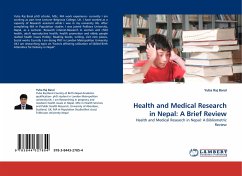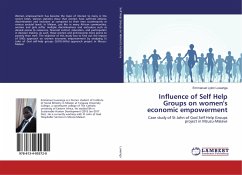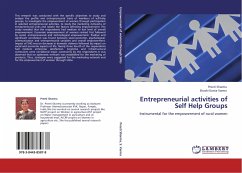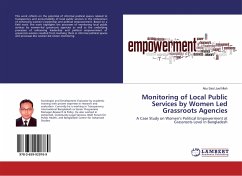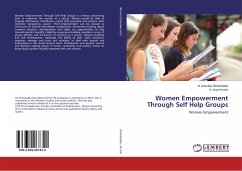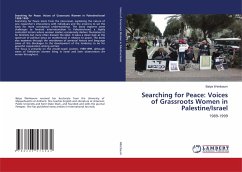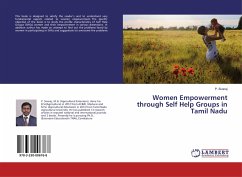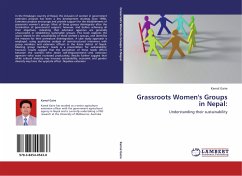
Grassroots Women's Groups in Nepal:
Understanding their sustainability
Versandkostenfrei!
Versandfertig in 6-10 Tagen
32,99 €
inkl. MwSt.

PAYBACK Punkte
16 °P sammeln!
In the Himalayan country of Nepal, the inclusion of women in government extension projects has been a key development strategy since 1990s. Extension projects encourage and provide support for the establishment of grassroots women s groups. Most of these groups disintegrate after the termination of government support; however, and before achieving all their objectives, indicating that extension agencies are generally unsuccessful in establishing sustainable groups. This book explores the issues related to the sustainability of these women s groups, and identifies the reasons for their prematur...
In the Himalayan country of Nepal, the inclusion of women in government extension projects has been a key development strategy since 1990s. Extension projects encourage and provide support for the establishment of grassroots women s groups. Most of these groups disintegrate after the termination of government support; however, and before achieving all their objectives, indicating that extension agencies are generally unsuccessful in establishing sustainable groups. This book explores the issues related to the sustainability of these women s groups, and identifies the reasons for their premature disintegration. A case study approach is employed, using qualitative analysis of semi-structured interviews with group members and extension officers in the Kavre district of Nepal. Meeting group members needs is a precondition for sustainability; however, results suggest that the perception of these needs differs between the women who desire self-empowerment and extension agencies who want increased productivity. Results further suggest that while cultural diversity may increase sustainability, economic and gender diversity may have the opposite effect. Nepalese extension




